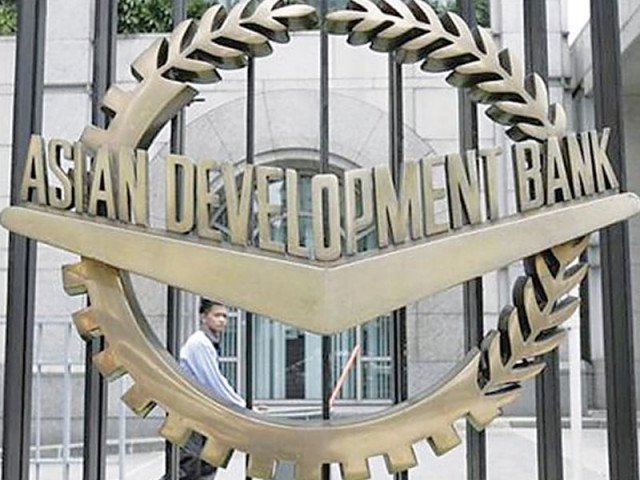Critical assessment: ADB slashes economic growth forecast to 3%
Believes Pakistan economy will pick up pace following wide-ranging reforms.

The ADB report suggested that lower growth in the first year of the programme is expected to come with some nominal exchange rate depreciation. PHOTO: FILE
The International Monetary Fund (IMF)’s overemphasis on stabilisation rather than increasing growth and job opportunities is likely to take a heavy toll on Pakistan’s economy this year, as the Asian Development Bank has lowered its growth projection to just 3%, reinforcing the views expressed by leading economists.
According to the Asian Development Outlook (ADO) Update 2014, Pakistan’s economy will grow at a pace of 3% in the current fiscal year ending June 30, 2014. The latest ADB forecast is even lower than its earlier estimate of 3.5%.
Though the 3% growth projection is slightly above the IMF’s forecast of 2.5%, it is still lower than the government’s ambitious growth target of 4.5%.
The new government has begun implementing a wide-ranging economic programme, supported by the IMF, to restore stability and enhance future growth prospects, but a pickup in the economy will come after 2014 as imbalances are corrected and structural reforms take hold, according to the ADO.
Against this backdrop, the ADB said, the IMF forecast growth at only 2.5%, reflecting the impact of substantial fiscal consolidation planned for this year. But it emphasised that structural reforms were critical to stabilising the economy and improving future growth prospects.
Under the IMF agreement, the government is bound to bring down budget deficit by 2.2% of gross domestic product or Rs576 billion in a single year. Besides, the programme calls for a tight monetary policy and allowing rupee depreciation, which is expected to fuel inflation and hurt people’s purchasing power.
According to Dr Ashfaque Hasan Khan, a leading economist, the IMF programme reflects policies of the 1980s with focus on ‘stabilisation first’ that has ignored growth and employment generation altogether. In a recent article, he wrote that when this programme was viewed against the backdrop of slower economic growth, rising unemployment and poverty and growing social unrest over the last five years, it was indeed frightening.
Khan stated that due to overemphasis on stabilisation about 50-55% of new job seekers will remain jobless.
The ADB said inequality persisted in Pakistan in access to education, influenced by wealth. Net attendance in primary schools for the top quintile of households (according to per capita household expenditure) was many times higher than the bottom quintile.
The ADB suggested that lower growth in the first year of the programme was expected to come with some nominal exchange rate depreciation. It noted that from July 1 to September 24, the rupee depreciated by 8.7%.
It pointed out that expected inflows of remittances and the Coalition Support Fund would keep the current account deficit at 0.8% of GDP in fiscal year 2013-14, slightly higher than IMF’s projection of 0.6%.
However, Pakistani economists have found fault with the 0.6% estimate, believing the figure was deliberately kept lower to manipulate net foreign currency assets and net domestic assets targets.
According to the ADB, foreign reserves under the programme are targeted to increase to $9.6 billion by the end of current fiscal year, which will provide import cover for 2.2 months.
The ADB observed that energy reforms were at the core of the IMF programme. Beyond the energy sector, the IMF reform package extends to restructuring 65 public enterprises and privatising many of them.
Risks to IMF programme
The ADB report also highlighted serious risks to the IMF reforms programme, observing that most of the required reforms have political and governance dimensions that have posed formidable barriers in the past. “If these barriers remain, Pakistan will not have the active and vibrant private sector that it needs for growth and job generation,” it said.
Pakistan is at a turning point where political conditions will determine whether or not the future holds further deterioration or enhanced growth prospects, according to the ADB.
Published in The Express Tribune, October 3rd, 2013.
Like Business on Facebook, follow @TribuneBiz on Twitter to stay informed and join in the conversation.



















COMMENTS
Comments are moderated and generally will be posted if they are on-topic and not abusive.
For more information, please see our Comments FAQ